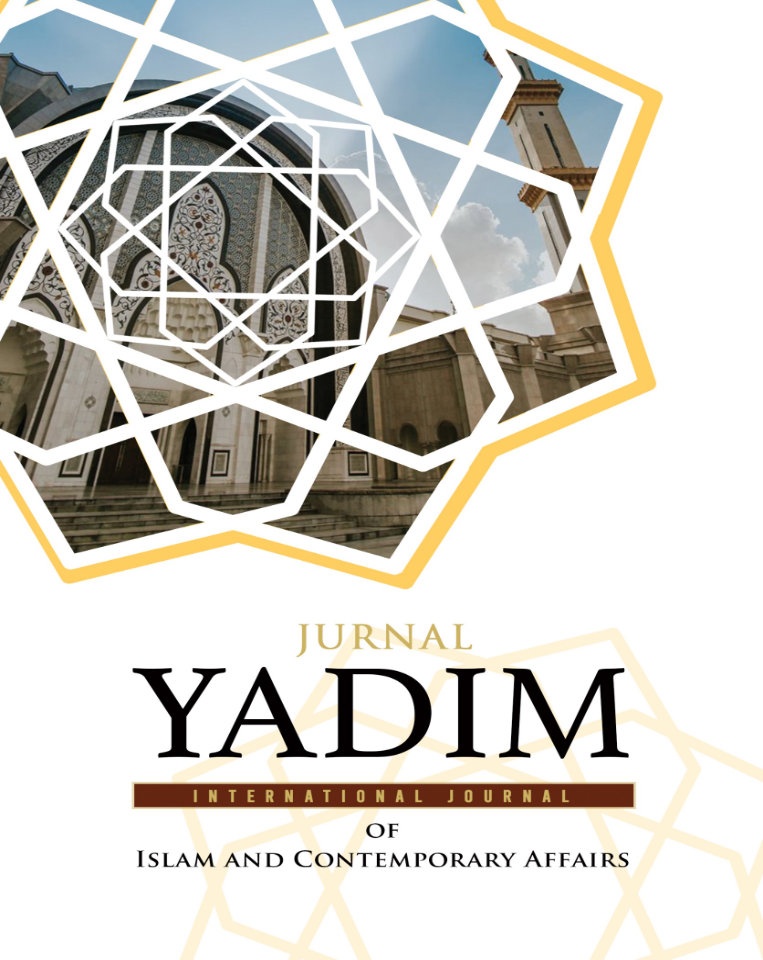AMANAH DALAM PEKERJAAN MENURUT TAFSIR AL-TABARI Trustworthiness in Job According to Tafsir Al-Tabari
Main Article Content
Abstract
Integrity is an important value in a work practice. Islam has required this value even though it involves working with fellow human beings. This article features the emphasis on trust in Islam based on eight Quranic verses and the interpretation of the Quran presented by Ibn Jarir al-Tabari. He is Abu Ja’far Muhammad ibn Jarir al-Tabari who has produced Jami’ al-Bayan ‘an Ta’wil Ay al-Qur’an, also known as Tafsir al-Tabari, which is one of the earliest interpretation work in ma’thur area. In the world of work, integrity issues often occur. Every Muslim should be aware that integrity is a principle of the Qur’an that should not be ignored. This study is important to be used as a guideline for the integrity of the individual Muslim work especially in Malaysia and subsequently to pursue a good quality of God’s work. This study applies the method of data analysis included deductive and descriptive methods which are used to obtain the verses of trust in the al-Qur’an al-Karim and describe the facts of interpretation in the work of Tafsir al-Tabari. Furthermore, the data were analyzed to obtain conclusions about the aspects of trust emphasized in the context of work practice. The findings show that although al-mat’hur’s interpretation is under the influence of classical scientific materials, the interpretation of trust is always relevant and appropriate to emphasize in the work environment over time. Islam is very obliging of the behavior of trust to succeed in work among human beings in line with the mission of implementing the trust from Allah SW.T. The most important formulation is that each sentence of the verse interpreted by al-Tabari is closely related to the working emvironment. Trust is divided into two parts, namely the trust of Allah SWT and trust among fellow human beings. In animating integrity, a Muslim should understand that Allah SWT has sent down a message of trust that must be implemented as soon as possible. This obligation can be implemented with self- adheral of positive competence in management or subordinate.
Downloads
Article Details
References
Al-Quran al-Karim
Ali Yusuf Ali. 1989. Silsilah Ulama Tafsir. Kuala Lumpur: Pustaka Antara. Angela Baron & Michael Armstrong. 2010. Pengurusan Modal Insan. Kuala
Lumpur: Institut Terjemahan Negara Malaysia.
Auni Haji Abdullah. 2000. Hisbah dan Pentadbiran Negara. Kuala Lumpur:
IKDAS Sdn. Bhd.
Al-Dawudi, Muhammad bin ‘Ali. t.t. Tabaqat al-Mufassirin. Beirut: Dar al-Kutub
al-‘Ilmiyyah.
Al-Dhahabi, Muhammad Husain. 2005. al-Tafsir wa al-Mufassirun. Misr: Maktabah al-Qahirah.
Al-Hamawi, Abu Abdillah Yaqut bin Abdillah. 1997. Mu’jam al-Udaba. Beirut:
Muassasah al-Ma’arif.
Al-Nawawi, Mahy al-Din Yahya b. Sharaf. t.t.. Sahih Muslim bi Sharh al-
Nawawi. Qahirah: Dar al-Hadith.
Al-Qurtubi, Abi ‘Abd-Allah Muhammad bin Ahmad. 2006. Al-Jami’ li Ahkam al-Qur’an. Beirut-Lubnan: Muassasah al-Risalah.
Al-Tabari, Abu Ja‘far Muhammad Ibn Jarir. 2009. Jami‘ al-Bayan ‘an Ta’wil Ay
al-Qur’an. Beirut: Dar al-Kutub al-‘Ilmiah.
Al-Zahabi, Muhammad Husain, Dr. 2005. Al-Tafsir al-Mufassirun. Qahirah: Dar
al-Hadith.
Al-Zuhaili, Wahbah. 1998. al-Tafsir al-Munir fi al-‘Aqidah wa al-Shari‘ah wa
al-Manhaj. Beirut: Dar al-Fikr.
Dewan Bahasa dan Pustaka. 2021. Kepercayaan. http://prpm.dbp.gov.my/Cari1? keyword=kepercayaan = 23 Februari 2021.
Elliot, R.F. 1991. Labor Economics. Maidenhead: McGraw-hill.
Ibn Kathir, Abu al-Fida’ Isma’il bin ‘Umar. 2000. Tafsir al-Qur’an al-‘Azim, Beirut-Lubnan: Dar Ibn Hazm.
Jamal al-Din Muhammad b. Mukarram b. Manzur. 2003. Lisan al-‘Arab. Beirut: Dar al-Sadir.
Metcalfe, B.D. 2007. Gender and Human Resource Management in the Middle
East. International Journal of Human Resourse Management.
Mohd. Radzi Othman & Ghafarullahuddin Din. 2005. Ekonomi Dalam Perspektif al-Qur›an dan al-Sunnah. Pulau Pinang: Universiti Sains Malaysia.
Mudawi Ma’arif. 2019. Penafsiran Qiraah Ganda. Tesis doktor falsafah.
Surabaya: Universitas Islam Negeri Sunan Ampel.
Muhammad ‘Ali Baighun. 2000. Tanwir al-Miqbas min Tafsir Ibn ‘Abbas. Beirut-
Lubnan: Dar al-Kutub al-‘Ilmiyyah.
Mufti Muhammad Taqi Usmani & Shakir Rizwani (terj.). 1995. Islam Awr Jiddat
Pasandi. Islam andmodenisme. Lahore: Idara-e-Islamiat.
Muhammad Amhazun. 1999. Fitnah Kubro: Tragedi pada Masa Sahabat- Kalrifikasi Sikap serta Analisis Historis dalam Perspektif Ahli Hadits dan Imam al-Thabary. Daud Rasyid (terj.). Cet I, Jakarta: LP2SI Al-Haramain.
Sahlawati Abu Bakar, Mariam Abd. Majid & Nurzatil Ismah Azizan. Kepentingan Sifat Amanah: Analisis Tematik Dalam Al-Quran. Kertas kerja Persidangan Antarabangsa Pengajian Islamiyyat Kali Ke-3 (IRSYAD 2017). Selangor: Kolej Universiti Islam Selangor.
Sarimah Hanim Aman Shah. 2006. Ekonomi dari Perspektif Islam. Selangor:
Fajar Bakti Sdn. Bhd.
Sidek Mohd Noh. 2002. Reka Bentuk Penyelidikan: Falsafah, Teori dan Praktis.
Selangor: Penerbit Universiti Putra Malaysia.
Syeikh Abdullah Basmeih. 2000. Tafsir Pimpinan al-Rahman Kepada Pengertian al-Quran. Bahagian Hal Ehwal Islam, Jabatan Perdana Menteri. Kuala Lumpur: Dar al-Fikir.

